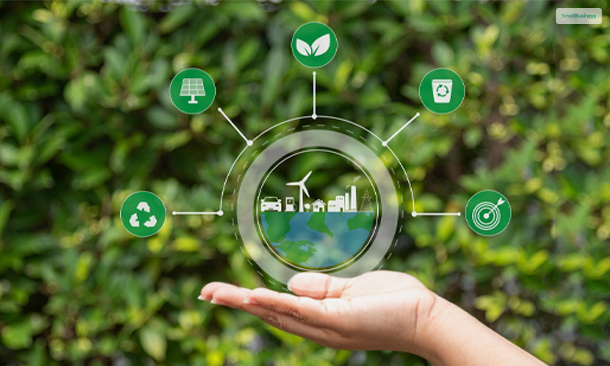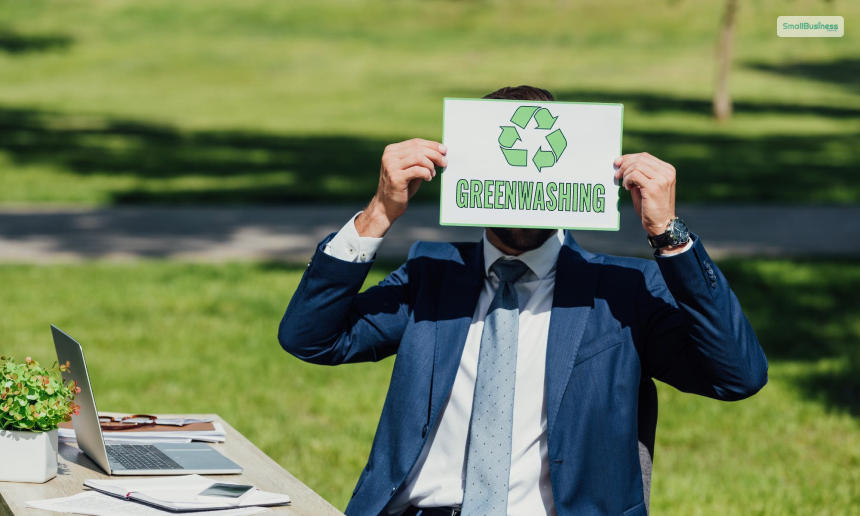What is Greenwashing? – This is a situation where businesses convey false and misleading information about how much their offerings are environmentally sustainable. This is one of the major ways through which many business entities try to deceive customers and authorities. Customers buy their products and services after believing that their products are environmentally friendly.
In this article, you will learn about what greenwashing is and how it works. Here, we shall explain how businesses use greenwashing to deceive their customers. Next up, we shall also explain how greenwashing is bad for businesses as well as the market. Then, you will learn more about greenwashing with the help of examples. Finally, we will also discuss the role played by the Federal Trade Commission to fight greenwashing.
What Is Greenwashing?

According to Business News Daily,
“Greenwashing is when an organization spends more time and money on marketing itself as environmentally friendly than on actually minimizing its environmental impact. It’s a deceitful marketing gimmick used by companies to exaggerate their environmentally friendly actions. It is intended to mislead consumers who prefer to buy goods and services from environmentally conscious brands.”
basically, greenwashing is a situation when a company makes unsubstantiated claims about its products and offerings. Here, these companies deceive their customers into believing that their products are environmentally friendly and they have a greater positive impact on the environment. However, people find out later that these products are not environmentally sustainable, or they never find out at all.
A company that practices greenwashing tries to put more emphasis on a product’s sustainable aspects. They do this to overshadow the involvement of the company in practices that are environmentally damaging and can degrade the brand image.
How Does Greenwashing Work?
Businesses perform greenwashing through the use of environmental imagery, and they also make misleading labels and hide their tradeoffs as well. They use all sorts of false information to hide their errors, wrongdoings, and unpleasant situations intentionally so as to make them seem less bad than they actually are.
These businesses capitalize on the growing demand among consumers for products that are environmentally sound. They do this by conveying a false impression of their products and services through various marketing practices. While marketing their products, these businesses basically lie about their products being environmentally friendly.
Hence, customers get deceived and buy their products, while investors also feel that their products are environmentally friendly, and they put in their money. Therefore, it is important for investors as well as customers to research a brand before buying environmentally sustainable products from them.
Many critics have accused different companies of greenwashing. These companies make profits by lying about being socially responsible or being at par with the environmental, social, and governance (ESG) investment movement.
Why Greenwashing Is Bad For Business?
According to NRDC.org,
“Over time, greenwashing erodes consumer faith, which makes us more likely to dismiss environmental claims altogether—even the ones that are legitimate. But there are far worse impacts, too. Companies making these greenwashed products or running these greenwashed businesses and facilities have a history of setting up in low-income communities.”
Hence, greenwashing disrupts not only the image of the company but also the image of the market, as well as related companies as well.
Furthermore, greenwashing is deceitful and unethical. This is because it misleads both customers and investors who are on a genuine search to seek companies that follow environmental sustainability.
In major cases, companies sell green products at premium prices. However, due to greenwashing, consumers end up paying more price for a product that is not environmentally friendly. This leads to the brand’s reputation getting tarnished.
Greenwashing – Some Simple Examples To Look Out For
There are plenty of examples of greenwashing that you can see when you are going to buy products. However, most of the greenwashing techniques you will come across are subtle and include various manipulation techniques. Here are some examples to be aware of:
- The presence of nature-based imagery on packaging implies environmental sustainability despite the fact the product is not.
- Many companies use environmental buzzwords like “natural” and “eco-friendly.”
- The presence of the word “recyclable,” although it is not clear whether the package is recyclable or the product.
- Making ambitious climate pledges on their packaging or on their newsletters.
Role Of The Federal Trade Commission (FTC) In Prevention
Most of the companies that you look around you are, of course, not involved in greenwashing their customers and investors. There are only some, but they are still in huge numbers. However, there are many companies that produce products that are actually environmentally friendly. These products come in a certain type of packaging that compares the differences in constituents in their products and their competitor’s versions.
According to Investopedia,
“The marketers of truly green products are only too happy to be specific about the beneficial attributes of their products. The website for Allbirds, for example, explains that its sneakers are made from merino wool, with laces made from recycled plastic bottles, and insoles that contain castor bean oil. Even the boxes used in shipping are made from recycled cardboard.”
The job of the Federal Trade Commission (FTC) is to provide protection to consumers. To do that, the FTC enforces the laws that are designed for the marketplace to keep it competitive and fair. Due to this, the FTC offers guidelines to investors and customers as to how to differentiate between real green products and the products that are the result of greenwashing.
Final Thoughts
What is Greenwashing? – Hopefully, you have found a useful answer to this question. Greenwashing is a serious issue in the market and also in the world. A business considering environmental sustainability is a big need for investors. Due to this, there are still many companies that falsely claim to consider environmental sustainability during offerings.
The practice of greenwashing is unethical, and companies practice this to gain the favor of investors and customers. More awareness and strong steps from the FTC are required to prevent this practice from happening. What is your opinion on this issue? Share your thoughts on this in the comments section below.
Continue Reading:




Leave A Comment